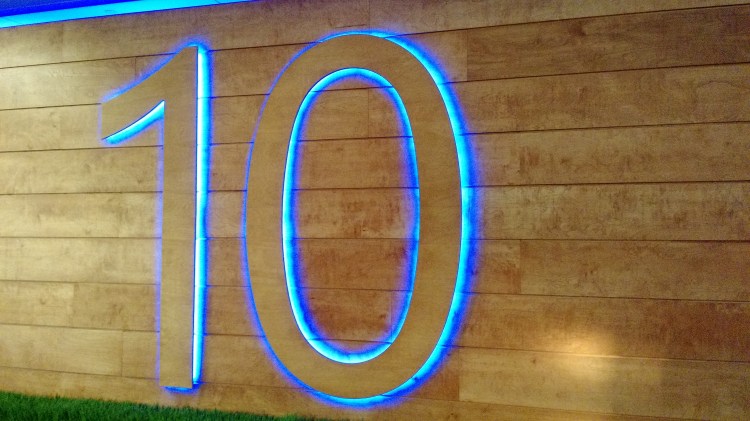When Microsoft confirmed it will offer free Windows 10 upgrades to pirates worldwide, many were shocked. VentureBeat has been trying to get more details from the company, which disclosed today that after PCs with pirated copies of Windows 7 and Windows 8.1 are upgraded to Windows 10, they will remain in a “non-genuine” status and Microsoft will not support them.
“With Windows 10, although non-genuine PCs may be able to upgrade to Windows 10, the upgrade will not change the genuine state of the license,” a Microsoft spokesperson told VentureBeat. “Non-genuine Windows is not published by Microsoft. It is not properly licensed or supported by Microsoft or a trusted partner. If a device was considered non-genuine or mislicensed prior to the upgrade, that device will continue to be considered non-genuine or mislicensed after the upgrade. According to industry experts, use of pirated software, including Non-genuine Windows, results in a higher risk of malware, fraud — identity theft, credit card theft, etc. — public exposure of your personal information, and a higher risk for poor performance or feature malfunctions.”
Yet this doesn’t provide enough answers. After a pirate upgrades to Windows 10 for free, does this “non-genuine” version expire and become unusable after a certain period of time? Does no support mean no security updates for pirates?
Microsoft declined to answer both these questions. The company did, however, explain that it will have a system in place to get these pirates to address their “non-genuine” status.
“We will provide a mechanism for non-genuine Windows 10 PC devices to ‘get genuine’ via the new Windows Store, whether they are upgraded versions of Windows or purchased,” a Microsoft spokesperson told VentureBeat. “We will have details on this as we get closer to launch.”
It’s worth looking at how existing Windows versions expire when they’re in non-genuine status. The Genuine Windows FAQ says the following happens after 30 days:
Until you correct the issue, you’ll receive periodic reminders that Windows is not genuine. In addition, to more clearly display these messages, your desktop might turn black. You can reset it, but every 60 minutes, it will return to black until the issue is resolved.
This is called Reduced Functional mode, and it basically means your computer turns off every hour. Microsoft will, however, let you squeeze in security updates during this limited time frame:
Regardless of genuine status, you’ll still be able to get critical security updates. However, if your copy of Windows isn’t genuine, you won’t be able to install many updates that are exclusively for genuine Windows customers, including Microsoft Security Essentials. Microsoft strongly recommends that you get genuine Microsoft software immediately to help ensure a safer computing experience.
In short, Windows eventually becomes unusable (unless you are perfectly happy with using your computer in less than 60 minute increments), though it will continue to get security updates. This only applies to the latest versions of Microsoft’s operating system (Windows Vista, Windows 7, and Windows 8.x).
Windows 10 could end up behaving differently in terms of expiry and security updates. Microsoft has experimented with various solutions over the years, and while the company is clearly interested in a different approach, it isn’t yet ready to share everything.
The direction Microsoft chooses to go will not just affect its bottom line and pirates but other Windows 10 users as well. Getting more users onto the latest operating system is great, but it’s useless if they’re not getting security updates. This is something Microsoft has struggled with for years, and the company underlines the problems at the end of the first statement above: “Use of pirated software, including non-genuine Windows, results in a higher risk of malware, fraud — identity theft, credit card theft, etc. — public exposure of your personal information, and a higher risk for poor performance or feature malfunctions.”
Piracy hurts the Windows ecosystem as a whole. Yet the decision is not a simple one.
If Microsoft gives pirates a free upgrade with no strings attached, like it is doing for genuine Windows 7 and Windows 8.x users, it will likely face some backlash from paying customers. But if Microsoft locks pirates out of a critical part of Windows 10, they will simply revert to circumventing the “non-genuine” status, just like with previous versions of Windows.
VentureBeat's mission is to be a digital town square for technical decision-makers to gain knowledge about transformative enterprise technology and transact. Learn More

